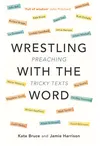I was recently privileged to listen to a recording of a famous and much-used preacher, from 50 years ago.
It was at the time of the 50th anniversary of the assassination of President John F. Kennedy and the sermon I listened to had been preached in England the Sunday after that fateful Friday. It was, as I expected, a faithful and powerful biblical address, with strong reminders of the fragility of human life and the vanity of putting one’s hopes in mere men. This was followed by a stirring call to repent and put one’s trust in the promises of the eternal God, made available to us through the person and work of Jesus Christ.
From another age
What particularly struck me was that nobody could preach like that today. Of course, the sermon’s script could still be read and understood with great benefit, but the style of communication, its rhetoric and rhythms, belonged to another age – now completely gone. The same was true of the whole service, which was also recorded, led entirely and only by the same minister who preached, prayed and read, with four traditional hymns, to organ accompaniment. It was not so much that the vocabulary was dated, though it inevitably was, but that what I might call the unspoken agreement, or understanding, between the preacher and the obviously large congregation would not have the same currency in today’s context – even among regular church-goers. The way in which the congregation was addressed, the fact that they were prepared to come in their hundreds, weekly, for a 90-minute service, with minimal congregational participation, the sense of social and moral certainty which was threaded through the proceedings, its affirmation of spiritual truth but without much emphasis on analysis or argument – they all took me back to my youth and a renewed awareness of how much things have changed.









